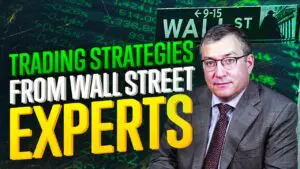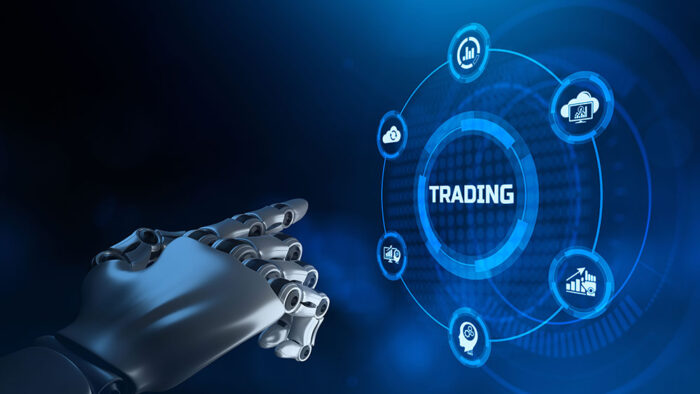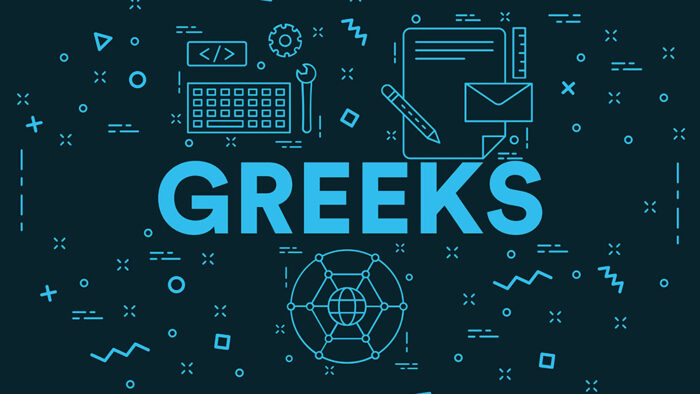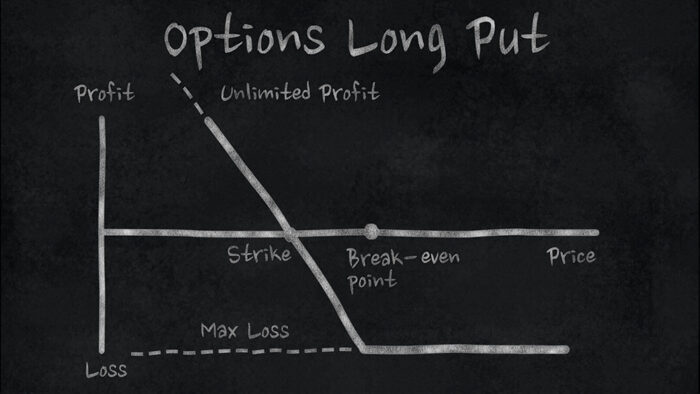US Global Investors’ CEO and CIO Frank Holmes joins IBKR’s senior market analyst Steven Levine to discuss the health of the U.S. retail sector, amid rising inflation, higher interest rates, sour consumer sentiment, and an overall global economic slowdown. What are the catalysts behind the growing bifurcation in the retail industry? What can parking lots say about the prospects for certain stocks? And will brick and mortar stores ever stage a resurgence? Find out in this insightful and engaging conversation!
Note: Any performance figures mentioned in this podcast are as of the date of recording (August 24, 2022).
Summary – IBKR Podcasts Ep. 34
The following is a summary of a live audio recording and may contain errors in spelling or grammar. Although IBKR has edited for clarity no material changes have been made.
Steven Levine
Hello, and welcome to IBKR Podcasts. I’m Steven Levine, senior market analyst at Interactive Brokers, and your host for today’s program. We’ll be speaking with Frank Holmes, CEO and Chief Investment Officer at US Global Investors1, about his insights into the health of the retail sector in today’s economy.
Welcome Frank, it’s great to have you here. Thanks for taking the time to do this.
Frank Holmes
It’s great to be back.
Steven Levine
Really great. Thank you so much. So, we’ve recently had a lot of retail earnings come out – year-to-date, the retail sector ETF is down about 25% — that’s around twice as much as the S&P 500 index — and the country remains gripped with high levels of inflation; there are manufacturers suffering through what appears to be their toughest business conditions in about 13 years; consumer sentiment is near all-time lows.…This is all really concerning — not just for retail, but really for overall growth.
I’d love to get your insights on the sector’s prospects. I suppose we can start with: How did we get here? Why are we seeing such struggles, in your view?
Frank Holmes
Well, we believe that government policies are precursor to change, and one of the things we’ve noticed since 2001 has been this sort of propensity by the G7 countries to use MMT, modern monetary theory, to solve every problem. And each time we go through a global event … the amount of money is not the same as the last time … it’s two to three times the amount of money to solve the problem. So, we continue to see fiscal policy, which is tax and regulation, and monetary policy is real interest rates and money supply … and what we’re seeing is growing regulations and a growing money supply to try to keep the engine going with all these regulations. And regulations are needed many times, but they’re quite often outdated, and they need to be streamlined, if anything. And throwing more money at it, cheaper money, it just creates this backed up inflation.
Since 2000, it’s hard for people to grasp this, but gold is almost three times greater in performance than the S&P 500. The largest hedge fund in the world, Ray Dalio, has had 10 to 15% in gold throughout this period. And so, I think it’s this imbalance between monitoring fiscal policies, relying too much in MMT, and then you come along with something that’s also external and massively disruptive: Covid. And Covid has this sort of … it reminds you of history books of the ‘70s. A lot of the investors that they do not remember the 70s, they were kids. They weren’t listening to Steppenwolf’s, “Born to Be Wild”, and you know it wasn’t their world. Marvin Gaye singing beautiful songs about the Vietnam War … that person doesn’t relate to that world, but those who grew up in the ‘70s understand inflation. And the big disruption there was the oil crisis, or the OPEC [Organization of Petroleum Exporting Countries] basically spiking the price of oil, which created this incredible inflationary binge that took place everywhere. So, that disruption of the oil embargo reminds me of Covid.
It’s something external. The demographics of most of the people have never experienced this and how they adapt and adjust to it. And then what I’m seeing now, or to travel, is what I like to call the ‘Zoomers’. There’s 1,000,000 Zoomers out there that work from home, and they actually want to go and travel and do their work from Cancun. They know all the cheapest flights… you see JetBlue taking over Spirit, why? Spirit dominates the Caribbean inexpensive flights. Now, all of a sudden, JetBlue takes over the whole East Coast of the Caribbean. And people want to get out of New York and Chicago, they’re going to fly down to Florida, then go to the islands, because you have a million active people looking for tourist travel, but they’re working from these hotels. It’s really one of those unexpected consequences that came out of Covid.
Steven Levine
It’s really interesting when you bring up, say, inflation having been driven by oil in the ‘70s, for example. And a lot of people, and I hear this a lot in terms of our inflationary backdrop today, as being a culprit of, say, geopolitical unrest between Russia and Ukraine, or the war between Russia and Ukraine… and oil, or energy, spiking a great deal. Also supply chains … and I hear that a lot as well. But the question mark that I seem to have here is, you can have certain goods that are affected — a lot of goods — by energy — but that may not necessarily translate to, say, all goods and services. And you bring up this great point about modern monetary theory and the money supply, and it seems as though our money supply has really – maybe – been the culprit for inflation, given that it has just increased dramatically with MMT, I believe. Now, I’m not sure if that’s the case, but I’d love to get your thoughts there. It seems to me that this might just be the backdrop for retail, but I’m not sure.
Frank Holmes
Well, there’s another factor about government policies, and it’s something that’s been imported into America. Even with all the difficulties with passports, and people can’t move money easily, or move people around, we’ve been basically buying into climate change policies from Europe.
Steven Levine
Yes, yes.
Frank Holmes
And those climate change policies are very driven by emotional extremism, and researchers come out that a lot is funded by the KGB2. We know in the US that Matt Damon did a movie on ‘fracking is bad’, but it was funded by Gazprom.
Steven Levine
Oh, really? I didn’t know that.
Frank Holmes
Yes, if you watch the end of the movie, they’ll tell you. Another big anti-fracking movie was funded by the Government of Qatar, why? Because they’re the biggest exporters of LNG. And so, the policies — you don’t hear the Swedish girl screaming all the time.
Steven Levine
Is it Greta Thunberg?
Frank Holmes
Yes. You don’t hear her, because it’s been a disaster in Europe, where your utility bills are up 7-times, 700% increase in the cost of your monthly electrical bill, because they prematurely shut down all the nuclear reactors in Germany and Spain. And [Russian President Vladimir] Putin tried to have, … and he’s been funding NGOs, who then turn around and call … and they’re much easier to get to the media, and a classic example has happened in America, and that was Uber. Uber hired all these lobbyists to go into cities, and they see the town hall and all the taxi cabs – the license medallions – are controlled by usually one or two families. It was an oligopoly in every city. And so, naturally, they took care of all the politicians, so you never could get a new entry into it. So, they funded an NGO, Mothers Against Drunk Drivers, and they came in pounding the table, and immediately the politicians and the media backed away and in came Uber.
So, what we’re seeing now is a lot of clever funding by using NGOs to carry a proxy and can also be very manipulative like out of Europe. So, the climate change policies of trying to wipe out the use of carbon period and the timeline was not written and really orchestrated by engineers … like you just cannot have 70% of the world on some form of carbon and the idea of let’s kill 1,000,000 cows because they fart too much. You can see this backlash in Europe in particular, and it was a million sheep supposed to be slaughtered in the British islands. These are very disruptive.
What I do know from shipping is that the ships, all of a sudden, they removed 25% of the ships that could come into harbors unless they had these types of controls on them. And so, after Covid came out and there’s a big binge buying – there weren’t enough ships.
Steven Levine
The whole regulatory backdrop, I understand, has not been very flexible or conducive for large swaths of business sectors.
Frank Holmes
And so … a lot of this stuff comes out of the EU and the UN. So, the EU and the UN and the policies on shipping came out of the UN. And so, they’re just not coordinated globally. They’re not thoughtful globally on this idea of better policies. I have the opinion that we need more innovation, money spent on solving this problem, and biodegradable fans are talked about now for wind power. We need to have this sort of concept rather than excessive regulations. So, what you can see is that’s inflationary. It’s basically embedding the DNA of inflation into all these regulations globally.
Steven Levine
It’s a very, very different kind of backdrop, it seems, from at least what I remember from the ‘70s. It’s just it’s gone very far extreme in these directions, but if we look more specifically, say, against this backdrop and into retail, because we had a lot of retail earnings, and they seem to be all over the map, and there are a lot of firms that have revised their forecast lower and I’ve noticed that. Macy’s, Best Buy, I think… TJX Cos., I think that’s the owner of TJ Maxx. Notably, we just saw Nordstrom pretty recently cut its full year forecast and its stock went down. I mean, it really plunged like around like 19% or something after it released its results. So, I mean, are you concerned at all about any defaults in this sector among consumer discretionary companies, among retailers? Or perhaps, maybe, the inability for higher yielding companies to be able to access the debt markets?
Frank Holmes
Well, I think that there’s no doubt, can they enter the debt market with enough free cash flow to service the debt. I think the economy is pretty resilient, and it’s not going to stop this recession. What really greatly concerns me is that data points have come out in the past few days. In particular, something we follow because we’re known for the world of commodities and gold, and that is PMI, Purchasing Manufacturers Index, or the ISM. And what we saw in June, sorry — in August of 2020 was the PMI collapse and then came right back, and that meant all the money spending … the economy is going to turn around in six months.
For your listeners, Purchasing Manufacturers Index is a wonderful headlight of where you’re going. GDP is behind us, so you can’t drive your car staring out the rearview mirror, you have to look where we’re going. So, we at US Global use PMI and write about it every month, because a correlation to oil demand to copper to all the metals is between 60 and 75% correlated. And that means when the one month is below the three months, it means six months, we’re going to get a slowdown. When it goes below that magic number of 50 … that means recession. So, the world is actually contracting now. The US was holding the world up, and it’s just now … actually, it’s gone negative. And that tells you that everyone will start tooling down with their forecasting the economy to grow at.
So, I think some of the Macy’s stores and places like that… that’s more challenging because they carry much bigger debt loads. I think that some of the other supply lines that distribute products, et cetera, they’re in a different position. What we did in our research, we found was discretionary goods, the luxury end … they’re actually more resilient. It doesn’t mean they’re not going to cut back and doesn’t mean they’re not going to decline, but they’re. much more resilient of that catering to that top 10% of the population income earners.
Steven Levine
Well, this is interesting to me, because I’m curious about how high up in the high-end retailers, or luxury retailers, you might be thinking about? For example, in 2020, we saw some higher-end retailers go out [of business]. We saw Neiman Marcus. We saw Brooks Brothers. I think even among some of the more mid-tier, or higher mid-tier, retailers like Ralph Lauren or Estee Lauder, they’ve cut their forecasts as well. So, is it like a bifurcation on the extremes? Are we looking at a sort of barbelling of retailers that will do well on the high-end extremes and discounters on the other end at the extremes?
Frank Holmes
Well, I just came back from Paris, and you just wouldn’t believe on the high-end, Hermes, and Chanel … people are lining up outside – not because of Covid – because the staff inside can’t handle–
Steven Levine
The volume? Wow.
Frank Holmes
And so, there’s something there, you’re right. The bifurcation is quite significant. So, I think from that end, we’re going to see this bifurcation continue. And what happens, always, will be the discounters will do the best. The dollar stores will come back. We had a big run-up in discretionary goods, and I think that they’ll correct, but nothing to the degree that we’re going to see the mid-tier. The mid-tier is going to have the difficulty.
Steven Levine
So, these could be perhaps extended forecasts, maybe not just for their next quarterly reports…? Companies like Macy’s or Nordstrom … Nordstrom Rack, I suppose, as part of that. They seem to have a lot of built-up inventory and just not a great deal of demand for that inventory, and so, they’re experiencing some lower sales … anticipating lower demand.
Frank Holmes
It’s a very fashion conscientious crowd – not only from the technology you’re putting in your hand to look cool – it’s also clothes. So, by the time all that inventory got across the Pacific Ocean to the shores here, and got through ports and trucked over, it’s out of fashion. It’s not cool now. And so, we do see that. But one of the interesting parts in our research is that shipping is going to actually — it’s much more resilient in their ability to pass on. And in one of my other businesses, I notice DHL passes all energy costs on to you, and any insurance costs — you have to go and get your own insurance. So, one of the other businesses where we’re shipping products that are worth more than five million, we can’t do that in one day for insurance reasons. So, we had to buy separate insurance capped at $5 million a day to be able to move products, and all that before you could just sit down with DHL.
Steven Levine
Oh, wow.
Frank Holmes
And so, you see they have de-risked themselves. That’s the operative word I’m looking for.
Steven Levine
So, these costs that are being passed on – I know you mentioned shipping earlier, and regulations to adhere, or comply with, I suppose, UN requirements, or UN, I guess — I don’t think they can require anything, can they? Or they’ve got certain policies that it looks like they’re passing down to ensure that there is climate-friendly, I suppose, types of policies in the shipping … is what I understand.
Frank Holmes
They don’t have the authority like a regulator would have in the US, but they do have the ability of tremendous moral suasion if you get enough ports that haven’t agreed to it. All they have to do is get one. It’s an oligopoly, so you just have to get one or two and away you go.
Steven Levine
I kind of always view this framework – and I could be wrong about this – but I view this framework as the UN had set out a certain, Sustainable Development Goals, these SDG’s, and they speak to very ideal types of concepts. They talk about ‘No Poverty’ in the world or ‘No [Zero] Hunger’ in the world, and this is what they’re trying to achieve. And I think these got filtered down into the Paris Accord, or the climate agreement between all these countries that signed up for it. And so, now the governments of those countries are making good on promises that they made there. And they start to enact what basically the UN is suggesting we do, or recommending, for combating climate change.
And so, a lot of that filters into, I suppose, social projects – and then fixed income products that agree with these and so, all of a sudden, you’ve got a lot more social projects or environmental projects that are debt-funded, or the government just comes out with some spending plan for. And I think the modern monetary theory, as you as you mentioned earlier, is part of that. But you laid all this out already in the beginning, and so it makes a lot of sense to me now … that these regulations on the shipping side would come into play from those countries that might be part of that Paris Agreement and that want to see that these products, or this mode of transportation, is aligned with what they’re saying they’re doing. I’m not sure.
Frank Holmes
And then we get Putin invading Ukraine. You see, that just adds to it. It just shows the risks, and it exposes the Ukraine as a big exporter of not only food and fertilizer, also gas. And a lot of the policies in Europe were actually positioned that they had to rely on Putin, and now they have to go and fight this. So, you can see this disruption is a global phenomenon.
The other part is with data. You know, the one thing I learned from the airlines industry with our JETS ETF was, at the very bottom, the TSA started reporting how many people they clear a day. And before the crisis, it was 2.7 million a day. 2,000,000 Americans traveled every day. That fell down to 89,000 on April the 15th in 2020. Now that’s — the fact that we started printing that … it became a sentiment indicator. So, as it went through the 50-day moving average back to 200 thousand, 300 thousand people cleared a day, you can see the airlines starting to climb. And you could see the anticipation.
So now, this world is very much sentiment-driven, and when I was meeting with the utility companies in Sweden, they were commenting that they don’t have a problem of energy pricing, supply demand and surplus water issues, et cetera, in northern Sweden. But the sentiment of the fear that’s happened in the rest of Europe, pushes the prices up everywhere. So, that’s inflationary. If the sentiment — if people think they have to buy something fast now because it’s going to go higher, that becomes embedded in the DNA of people spending fast now. And that’s the biggest risk that we could have here.
Steven Levine
It’s daunting, it really is. And if we take a look at this, and we take a look at, say, the trajectory of catalysts, for example – how this could play out over…. It’s so difficult to, for me at least, to see ahead with all the uncertainties in the directions that these catalysts could go, but I understand consumer spending comprises about two-thirds of our GDP in this country.
Frank Holmes
Yep.
Steven Levine
And so, that’s quite a lot of concentration on consumer spending. I’m not sure what the state of really consumer spending is exactly, but as I’m seeing these downwardly revised forecasts, I’m thinking … and the way that consumer sentiment has been drawn up by, say, the University of Michigan, et cetera … it doesn’t look good. And so, what does the growth — we’ve already had two quarters of contraction. So, how do you see this unfolding in the next year or two? Are we going to continue to contract like this?
Frank Holmes
I think we’re going to have a classic recession. It’s not going to be a global crisis like 2008, or going back to 2001, where you have this global event take place. This is a rising interest rate, slowing down of inflation … recession. It’ll have some good benefits. We’ve seen trying to hire people, they don’t show up to work, it’s called ‘ghosting’. Restaurant owners were telling me here that these young kids refused to go outside because it was too hot.
Steven Levine
Yeah.
Frank Holmes
It’s severe danger and risk to them … that work ethic. So, recessions are probably healthy that wake up people. But right now, if people quit a job, if it’s in the service industry, still, it’s easy to get another job. And I don’t think that we’re highly leveraged like we were in 2008. If we go back on real serious global recessions, it’s always a credit crisis, where the industry or category was overleveraged. We can go back to — remember the SNL crisis we had?
Steven Levine
Yeah, yeah.
Frank Holmes
That brought down real estate in ‘84 – sorry, that came out in ’86, and that phenomenon took—.
Steven Levine
Charles Keating.… Was that Charles Keating? Or not Keating?
Frank Holmes
Well, he exposed it. He was a flagrant user of the SNL money, and a flamboyant guy, and they went after him. But it takes usually four years on a credit crisis. So, 2008 crisis, it wasn’t really ‘til 2012 that we saw the global economy turn. If we go back to ’97 – that was the Asian crisis, a credit crisis where Japan lent all this money, and people bought buildings with it, and they wanted their money back, and they couldn’t do it, so there was a currency devaluation. A credit crisis like that: four years. ‘98 was Russia defaulted on all their sovereign debt.
Steven Levine
Yeah.
Frank Holmes
And we had during that period Long-Term Capital [Management]. So, you get these things that could create a credit crisis. History says that it takes four years to repair that. A recession: it can last 13 months, and it’s over. And it does a cleansing of weak industries, and it makes some changes. So, I’m not concerned that we’re going to see interest rates go 200 basis points above the CPI number, because that would create a credit crisis. So, that means we’d have to have 12% interest rates right now. That’s what happened in 1980, when [former Federal Reserve chair Paul] Volcker came into power. He jumped them 6% above to break the psychology of inflation, and I think this gradual increase we’re seeing … that people are cutting back … and we’re going through that normal cut down.
Steven Levine
Well, I do hope that it works out. I think that everybody hopes it works out, and that we don’t have a prolonged period of pain from the recession. But I think, at the end of the day, I’d love to get your take on what you think investors in the retail sector should be watching out for over, say, the near- to medium-term. What is it that they should be looking at when they’re deciding to invest in something retail … let’s say equities.
Frank Holmes
That’s a great question, and there’s two ways to look at that. You can look at financials – but they’re always looking back, and is there momentum? I think the simple thing is: in 2020, I remember that everything shut down, but I had to drive to the office, and there’s a Lowe’s right across the street from us. Everything is empty except for Lowe’s. Holy ‘Jumping….’, what’s going on here?
Steven Levine
What was going on?
Frank Holmes
We’re doing this research, and Home Depot, all of a sudden, that parking lot was packed, but the supermarket was shut down. You had to go to a discount place. So, then, when all of a sudden, we saw everyone … all the workers that were doing renovations … people were stuck at home, they started doing all these renovations. And Amazon trucks were everywhere. So, the only thing you can see driving in your neighborhood actively where the Amazon trucks. So, you have to be observant – and it’s not your normal financial analysis of looking at stuff. You just have to go and observe, and you can see something happening.
Steven Levine
A lot of it sounds like common sense in a way. Sort of doing the math of your environment.
Frank Holmes
Yes, and looking for what’s the hottest selling thing. See, there’s lots of data points that come on the Internet for that, if that’s how you want to use it. But you have to look for that momentum, and it should correlate quickly with the stocks, because I’m a big believer in James Surowiecki’s book called the Wisdom of Crowds.
Steven Levine
Ok.
Frank Holmes
And in that research he did… that if your interest may be different than my motivation, but the motivation is we both want to make money, but what motivates you, and how much you expect, could be different than mine. But we’ll turn around and make a decision to buy this stock or sell it. And if you get enough different people with different interests to buy that, that average price is pretty accurate. So, if the Home Depot stock was rising, and I could just see that the parking lot was full – something’s happening here – and it’s this sort of thought process.
Steven Levine
It makes a lot of sense to me, and I’m curious…. When I look out at the landscape, and I see an [exchange-traded fund] ETF taking a bet on online companies and the demise of brick and mortar stores doing better than some of the other retail ETFs, for example, I start to become nostalgic for what was in my environment and wonder how things are going to go forward. For example, malls. I mean, there’s just a ton of sadness, it seems, when you think of malls. I saw some pictures of Kohl’s recently. I think that there was an article on Yahoo Finance, and somebody went out and took pictures of inside Kohl’s, and it just looked like a very depressing scene. And none of this is what I remember, say, back in the ‘80s, when you walked around malls, and they were very vibrant, and it was the place to go, and you’ve had movies likeFast Times at Ridgemont High3 or others. I mean, by the time, I think, Mallrats3 came out, things were starting to slow down, and now it’s YouTube videos of touring desolate locations, where people who are dispossessed live. It’s very nostalgic. And so, the whole retail sector to me just seems like it’s being hollowed out. And so, do you think that this bifurcation, or this barbelling, is something that we should learn to live with going forward?
Frank Holmes
Well, I think that a lot of these buildings you’re talking about, they didn’t keep up with the with renovations, and I think there’s a great piece of research going back over 20 years ago out of Harvard called The Experience Economy … and people go for a good experience. So, if you’re not updating that environment that you’re going to … like you said earlier, the malls were vibrant … well, they were vibrant. And they had a vibrancy with lighting. They had a vibrancy with fountains. They would have music, et cetera. So, they have to update themselves with something that’s new in technology. So, I think that a lot of companies failed to spend enough money entertaining people.
Steven Levine
Yes.
Frank Holmes
And driving a car, get the kids out, go through the mall … what creates this vibrancy? What makes it a great experience? I do believe that people do want to go through racks, and people do want to see things, but they want a great experience.
Steven Levine
Yep, yep. It’s definitely true for my experience, at least personally. I love to go to stores and have that experience, too. And if I go and I pick up something and I want to buy it, and I go to a register and there’s nobody at the register, then I can’t buy it. If I have to hunt somebody down to ask them, ‘Hey, you know, could you please ring me up?’, it becomes a very difficult situation, and you start to think, well, maybe I should just buy it online, and maybe that’s just the mindset, or what’s fueling the decisions these days. It’s unfortunate about the malls, but maybe we’ll have some better experiences going forward. I hope this again doesn’t fuel a prolonged bifurcation. I hope we do see a return of vibrancy to these stores that are suffering.
But, Frank, this has been terrific. Thank you so much for doing this. Is there anything else that you’d like to tell our listeners to watch out for?
Frank Holmes
Yeah, I think that you’ll have to be looking at having gold as part of your portfolio and rebalance each year. It’s far outperformed, and that rebalancing has done what you should do in a diversified portfolio. Because the money printing, when the panic buttons hit, it’s going to be another run at MMT. That has not broken, and I believe that following geopolitics and geoeconomic factors: the G20, G7 countries meet all the time … they’ve gone to synchronize corporate taxation … with the G7. So, they’ll go to synchronize MMT if there’s a panic button hit, and that’s where you start to really see gold shine, and it’s great for a diversified portfolio.
Steven Levine
It’s terrific, and it’s something certainly people who might be experiencing some difficulty, or who haven’t done that, should take heed, I suppose. That’s great. Thank you, again, Frank, this has been really, really great.
Frank Holmes
You’re welcome.
Steven Levine
Thank you so much. And listeners out there, you can read more market commentary, analysis and insights from US Global investors at IBKR’s Traders’ Insight at tradersinsight.news. They’ve got a lot of fascinating articles there, which delve into gold and precious metals, emerging markets, travel, as well as cargo and shipping – a lot of what we’ve discussed on this call today, as well as global resources and more.
And until next time, I’m Steven Levine with Interactive Brokers.
—
Related Links:
1. US Global Investors – Company Website
2. Pro-Putin NGO Pushed Green New Deal, Protested Keystone XL Pipeline
Disclosure: Interactive Brokers
The analysis in this material is provided for information only and is not and should not be construed as an offer to sell or the solicitation of an offer to buy any security. To the extent that this material discusses general market activity, industry or sector trends or other broad-based economic or political conditions, it should not be construed as research or investment advice. To the extent that it includes references to specific securities, commodities, currencies, or other instruments, those references do not constitute a recommendation by IBKR to buy, sell or hold such investments. This material does not and is not intended to take into account the particular financial conditions, investment objectives or requirements of individual customers. Before acting on this material, you should consider whether it is suitable for your particular circumstances and, as necessary, seek professional advice.
The views and opinions expressed herein are those of the author and do not necessarily reflect the views of Interactive Brokers, its affiliates, or its employees.
Disclosure: ETFs
Any discussion or mention of an ETF is not to be construed as recommendation, promotion or solicitation. All investors should review and consider associated investment risks, charges and expenses of the investment company or fund prior to investing. Before acting on this material, you should consider whether it is suitable for your particular circumstances and, as necessary, seek professional advice.
Disclosure: Futures Trading
Futures are not suitable for all investors. The amount you may lose may be greater than your initial investment. Before trading futures, please read the CFTC Risk Disclosure. A copy and additional information are available at ibkr.com.










![[Gamma] Scalping Please [Gamma] Scalping Please](https://ibkrcampus.com/wp-content/smush-webp/2024/04/tir-featured-8-700x394.jpg.webp)





